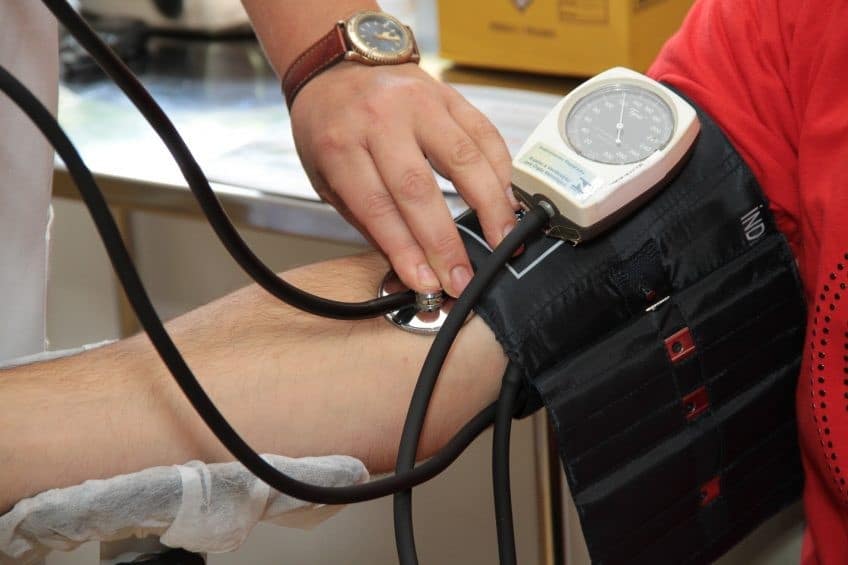Florida MedMal Damage Caps Held Unconstitutional
Medical MalpracticeThe Florida Supreme Court holds that caps on damages in medical malpractice cases violates the equal protection clause of the Florida Constitution in North Broward Hospital District v. Kalitan, Case Number SC15-1858 (June 8, 2017).
What Were The Damages Caps?
Florida’s medical malpractice damage caps were found in section 766.118, Fla. Stat. and placed a limit on the amount of “noneconomic damages” (sometimes referred to as pain and suffering) that a plaintiff could be awarded. In a nutshell, the amounts of the caps were:
PRACTITIONERS
-$500,000 per claimant
-$1,000,000 per claimant for cases involving death, a permanent vegetative state, or catastrophic injury
NON-PRACTITIONERS
-$750,000 per claimant
-$1,500,000 per claimant for cases involving death, a permanent vegetative state, or catastrophic injury
What Happened To Ms. Kalitan?
Ms. Kalitan went to the hospital in 2007 for outpatient carpal tunnel surgery. This procedure required her to undergo anesthesia. During the process of intubation, the breathing tube perforates her esophagus. No one on the medical team realized that a perforation had occurred.
After awakening in recovery, she complained of excruciating chest and back pain. She was given medication for pain and discharged.
The next day, Ms. Kalitan’s neighbor found her unresponsive and took her to the emergency room. An esophageal surgery was done to save her life, but she continues to suffer from upper body pain and serious mental disorders as a result of this event. These resulted in physical limitation and a loss of independence for daily living.
The Legal Issue In The Case Was Fairness
As mentioned above, the Florida Supreme Court held that the caps on damages above violate the equal protection clause of the Florida Constitution. In simple terms, this means that the government does not have a valid reason for making a distinction between people.
The Florida Constitution (Art. I, Sec 2, Fla. Const.) guarantees that “all natural persons, female and male alike, are equal before the law.” According to prior court precedent, this means that everyone is entitled to” enjoy the same rights” and to “bear the same burden” as others in a like situation.
The caps were originally passed in 2003, while Jeb Bush was governor, in response to a perceived medical malpractice “crisis” where political factions for doctors claimed that doctors were unable to afford malpractice insurance and that lawsuits were driving good doctors out of business. Governor Jeb Bush was a political supporter of “tort reform” and defense-oriented policies. The Florida Supreme Court found in its analysis that the statistics did not bear out a real medical malpractice crisis that was the result of runaway jury verdicts.
The State of Florida lived with damage caps on medical malpractice caps until 2014 when Estate of McCall was decided for wrongful death cases and suggested that all damage caps should also be found unconstitutional.
Remaining Unresolved Legal Issues
This decision is a big step toward reconstruction of the civil justice system after the Bush years. However, not all caps on damages have been addressed and not all issues have been resolved. This decision will be the basis for litigants facing caps in other cases to argue for a good faith change in the law. Decisions in the future will have to address these issues as they are brought to the court for consideration.
While the case suggests that “all” caps on damages violate equal protection, there is still the potential that cases involving emergency rooms, medicaid patients, and cases in which arbitration is offered might be treated differently. Section 766.118, Fla. Stat. places the following limits on emergency room cases:
EMERGENCY PRACTITIONERS
-$150,000 per claimant
-$300,000 aggregate
HOSPITAL WITH ER
-$750,000 per claimant
-$1,500,000 aggregate
-credit for settlements with practitioners
Emergency rooms are often required to provide treatment to patients under EMTALA. While it seems logical that the notion that all caps are unconstitutional would apply to ER cases, the legal result will depend on whether the courts see a valid reason to give the ER’s legal protection.
The same arguments (perhaps better arguments) exist for caps on damages as applicable to medicaid patients. Section 766.118, Fla. Stat. places the following cap on cases brought by medicaid patients:
-$300,000 per claimant with no more than $200,000 provided by any one practitioner
The cap on medicaid recipients’ claims is probably the most egregious of all the damages caps contained in section 766.118, Fla. Stat. Nonetheless, in the current political climate under President Donald Trump, the legal acceptability of such discrimination still remains a legal question that is not completely resolved by the courts despite the decision in Kalitan.
The medicaid caps in Florida were recently ruled unconstitutional by a federal judge in Dixon v. U.S., (Case No: 15-23502-Civ-Scola, Federal District Court for the Southern District of Florida). However, this is a trial court ruling and is not presently binding on any other courts in Florida and will have to withstand the test of appeal before becoming the law of the land.
Finally, section 766.207, Fla. Stat. provides damage caps of $250,000 in noneconomic damages plus a formula for economic damages in cases where a medical malpractice defendant admits liability and offers go to arbitration. Failure to accept arbitration results in a limitation of economic damages to the formula with the noneconomic damage cap increasing to $350,000 (under the St. Mary’s Hospital rationale, likely $350,000 per claimant). With regard to medical malpractice arbitration, an equal protection challenge to the caps might be subject to different scrutiny because a defendant must admit liability.
Only time will tell what happens if and when these additional challenges are brought.
Contact A Lakeland, FL Medical Malpractice Attorney For Help With Your Case
If you or a loved one has sustained an injury due to the negligence of a doctor or hospital, you should look for a medical malpractice attorney in Lakeland, FL near me to discuss whether you have a case. A consultation is free with a Lakeland medical malpractice attorney.


